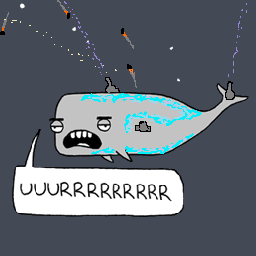I found this its the cheapest 10TB Exos drive on Newegg and looking to buy 4 of them. I will be putting them in my NAS that I use for my media library and pc backups. The price I’m posting this is $130, I’m also looking similar Exos drives that are $250 is there a difference? Should I shell up for the more expensive drives?
Removed by mod
I got a set off ebay, Jesus christ they’re loud. I ended up returning them cause I could hear the grinding through my whole house
I have 3 14tb exos drives. I have them in a Roswell 4u hotseap chassis. Running unraid.
It’s nearly inaudible over the very reasonable case fans. No grinding noises. I can hear the heads moving a bit but it’s quite subtle. Not sure why people have such different experiences with these
I noticed when they first spin up on boot they do some sub routine and they’re pretty loud and chatty. First time I heard it I was spooked but it worked fine and I just use it for backup so I just moved on. Once it’s on and in normal operation it’s like any other disk I’ve used over the decades. Nothing as loud as an old scsci disk or a quantum fireball.
Removed by mod
Removed by mod
Aren’t they meant to go in data centers? You wouldn’t want a drive in a data center to spin down. That introduces latency in getting the data off of them.
Removed by mod
deleted by creator
Data centers replace drives when they fail and that’s about it. They don’t care much about SMART data.
We used to use smart data to predict when to order new drives and on really bad looking days increase our redundancy. Nothing like getting a bad series of drives for PB of data to make you paranoid I guess.
What kind of attributes did you find relevant? I imagine the 19x codes…
I’ve read the Blackblaze statistics and I’m using a tool (Scrutiny) that takes those stats into account for computing failure probability, but at the end of the day the most reliable tell is when a drive gets kicked out of an array (and/or can’t pass the long smart test anymore).
Meanwhile, I have drives with “lesser” attributes sitting on warning values (like command timeout) and ofc I monitor them and have good drives on standby, but they still seem to chug along fine for now.
I have an Exos x16 and x18 drive and they both spin down fine in Debian using hdparm. I use them for cold storage and they’re perfectly adequate.
Removed by mod
It’s really boring, Debian 12: /dev/disk/by-uuid/8f041da5-6f7a-4ff5-befa-2d3cc61a382c { spindown_time = 241 write_cache = off }
Removed by mod
It’s just the cheapest type of drive there is. The use case is in large scale RAIDs where one disk failing isn’t a big issue. They tend to have decent warranty but under heavy load they’re not expected to last multiple years. Personally I use drives like this but I make sure to have them in a RAID and with backup, anything else would be foolish. Do also note that expensive NAS drives aren’t guaranteed to last either so a RAID is always recommended.
To support this: Backblaze consistently reports much higher failure rates for Seagate drives than all others. I personally don’t trust them. All my failed drives are Seagate, but that’s anecdotal. https://www.backblaze.com/cloud-storage/resources/hard-drive-test-data https://www.backblaze.com/blog/backblaze-drive-stats-for-2022/ the by manufacturer graph.
That tracks with my experience as well. Literally every single Seagate drive I’ve owned has died, while I have decade old WDs that are still trucking along with zero errors. I decided a while back that I was never touching Seagate again.
deleted by creator
For sure higher but still not high, we’re talking single digit percentage failed drives per year with a massive sample size. TCO (total cost of ownership) might still come out ahead for Seagate being that they are many times quite a bit cheaper. Still drives failures are a part of the bargain when you’re running your own NAS so plan for it no matter what drive you end up buying. Which means have cash on hand to buy a new one so you can get up to full integrity as fast as possible. (Best is of course to always have a spare on hand but that isn’t feasible for a lot of us.).
Ok cool, I plan on using them in RAID Z1
Make that RAID Z2 my friend. One disk of redundancy is simply not enough. If a disk fails while resilvering, which can and does happen, then your entire array is lost.
Hard agree. Regret only using Z1 for my own NAS. Nothings gone wrong yet 🤞but we’ve had to replace all the drives once so far which has led to some buttock clenching.
When I upgrade, I will not be making the same mistake. (Instead I’ll find shiny new mistakes to make)
Instead I’ll find shiny new mistakes to make
This should be the community slogan
You must be running an icredible HA software stack for uptime increases so far behind the decimal to matter.
That was uncalled for.
Acronyms, initialisms, abbreviations, contractions, and other phrases which expand to something larger, that I’ve seen in this thread:
Fewer Letters More Letters HA Home Assistant automation software ~ High Availability NAS Network-Attached Storage RAID Redundant Array of Independent Disks for mass storage
3 acronyms in this thread; the most compressed thread commented on today has 8 acronyms.
[Thread #383 for this sub, first seen 29th Dec 2023, 10:05] [FAQ] [Full list] [Contact] [Source code]
Hell of a deal. i started using refurb drives, still 5 year warranty, because I was going through so many. Sometimes you get them half off.



